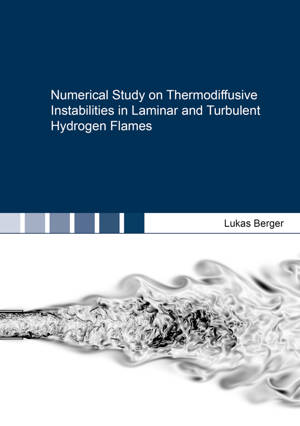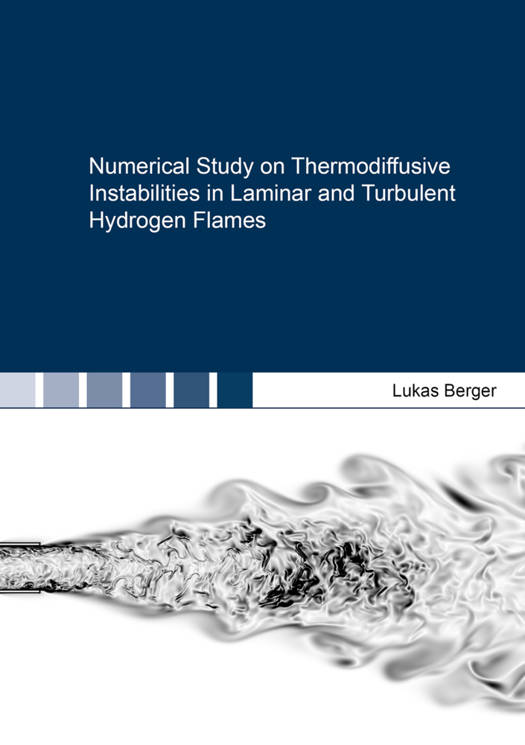
- Afhalen na 1 uur in een winkel met voorraad
- Gratis thuislevering in België vanaf € 30
- Ruim aanbod met 7 miljoen producten
- Afhalen na 1 uur in een winkel met voorraad
- Gratis thuislevering in België vanaf € 30
- Ruim aanbod met 7 miljoen producten
Zoeken
Numerical Study on Thermodiffusive Instabilities in Laminar and Turbulent Hydrogen Flames
Lukas Berger
€ 48,45
+ 96 punten
Omschrijving
The deployment of hydrogen represents a unique opportunity to decarbonize thermochemical energy conversion processes, but its utilization involves several scientific and technological challenges, e.g., lean hydrogen/air flames are prone to thermodiffusive instabilities. In this thesis, a series of direct numerical simulations (DNS) is performed to assess the impact of these instabilities on hydrogen/air flames. Such instabilities are shown to have a leading order effect on the flame propagation, yielding consumption speeds several times higher than the laminar unstretched burning velocity. An analysis of the characteristic flame front corrugation in laminar flows reveals the existence of a smallest and largest flame intrinsic length scale, whose formation mechanisms are studied in detail. Theoretical models are shown to be not capable of accurately describing the evolution of such flames, so the propensity of laminar lean hydrogen flames to develop thermodiffusive instabilities is studied at different equivalence ratios, unburned temperatures, and pressures. Further, to investigate the interactions of thermodiffusive instabilities and turbulence, large-scale DNS of turbulent lean hydrogen/air flames have been performed in a slot burner configuration. Thermodiffusive instabilities are shown to significantly affect the turbulent flame speed, which is not only enhanced by flame wrinkling, but is also greatly increased due to significant variations of the local reaction rates. The effects of differential diffusion are found to be even enhanced in a turbulent flame compared to a laminar flame at the same conditions. Thus, thermodiffusive instabilities are sustained in turbulent flows and even show synergistic interactions with turbulence.
Specificaties
Betrokkenen
- Auteur(s):
- Uitgeverij:
Inhoud
- Aantal bladzijden:
- 192
- Taal:
- Engels
- Reeks:
Eigenschappen
- Productcode (EAN):
- 9783844087130
- Uitvoering:
- Paperback
- Afmetingen:
- 148 mm x 210 mm
- Gewicht:
- 288 g

Alleen bij Standaard Boekhandel
+ 96 punten op je klantenkaart van Standaard Boekhandel
Beoordelingen
We publiceren alleen reviews die voldoen aan de voorwaarden voor reviews. Bekijk onze voorwaarden voor reviews.











